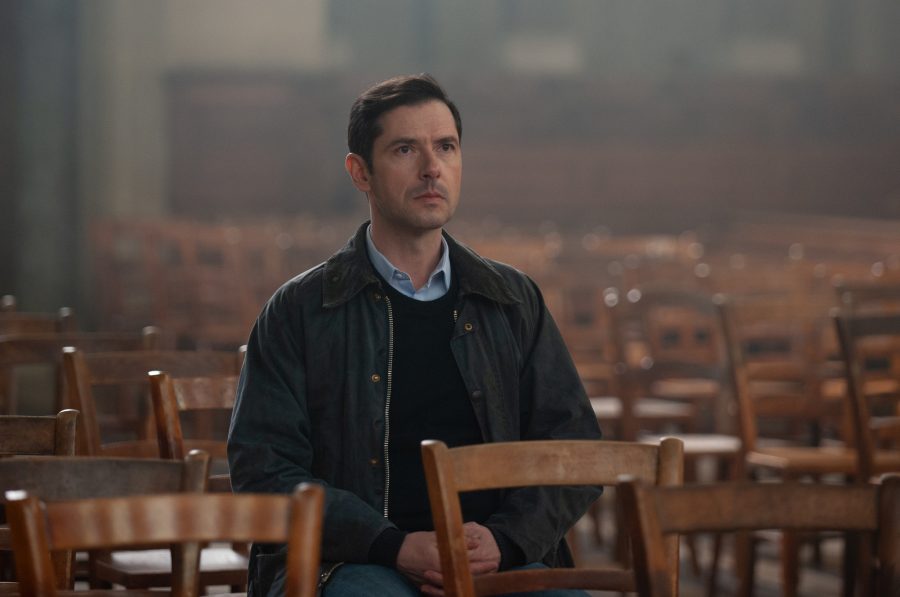“By the Grace of God” layers skin onto the skeletons of an all-too-familiar reality. Some are men of God, whereas others have just enough faith to take on a case that has shocked the world and rattled the French Catholic Church. A group of French men abused by Catholic priest, Father Preynat (Bearnard Verley), challenges the Church to be transparent in their handling of sex abuse allegations. The catalyst to the unveiling of wrongdoings by the priest is Alexandre (Melvil Poupaud). He dedicates himself to removing Preynat from power. Viewers are given an inside look into what Alexandre and the other men who came forward endured to enact change.
Director Francois Ozon is masterful in his presentation of the young boys reacting to the turned heads of the Church. The film depicts the state of the affected children and their parents with tact and grace, choosing not to sensationalize the events of the plot. Each scene that switches between present and past maintains a connection between the silenced boys they were and the courageous men they are. The emotion of the film tugs on the heartstrings as you learn more about how the abuse has affected the relationships in their lives.
Verley speaks volumes with the quiet demeanor of his performance. He does not present the character as immediately demonizing. It is up to the audience to separate the persona that the Church chooses to believe in and the predatory nature he hides. In scenes with Alexandre and other survivors, he does not overpower the scene. Verley leaves room for Melvil Poupaud to tell his story as Alexandre.
Poupaud’s performance starts out electric but seems to falter a bit as other key characters are introduced. Even though his character isn’t at the forefront by the end of the film, Poupaud is able to maintain the strength of Alexandre throughout. Swann Arlaud’s performance was quite memorable as Emmanuel, who believes that he has been medically affected by what Preynat did to him when he was younger.
The film’s bronze tones are warm yet still work well with somber scenes, such as when the survivors discuss the details of the abuse. Flashbacks through the movie did not feel abrupt but flowed well and reflected the length of the process without dragging on. The recurring color motifs connect the past to the present with neither feeling too detached from the other.
Expect to feel the weight of the silenced voices still present within the Church as you exit the theater. From a man living among the French bourgeoisie to a man who has lost everything, it is evident that abuse has no face. Similarly, faith does not belong to the institution of the Catholic Church in the film, but in the strength shared by the survivors.
Email Destine Manson at [email protected].























































































































































